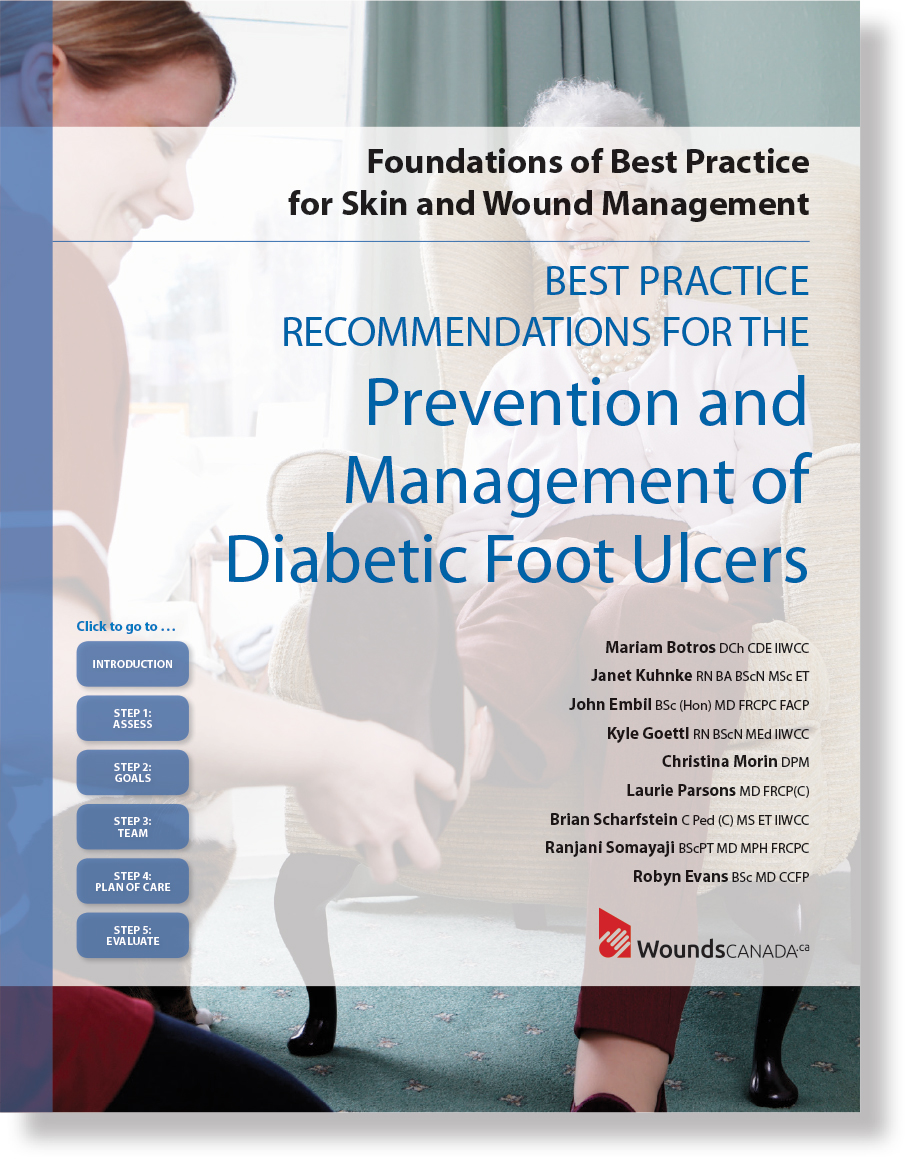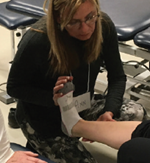Webinar and Skills Labs Faculty
Why take this program?
To prevent diabetic foot complications, it is imperative that clinicians acquire the knowledge and skills to identify people at risk for foot complications and to implement appropriate preventative and treatment measures, using a systematic approach.
Who should take this program?
Based on the content of the Wounds Canada document, Best Practice Recommendations (BPR) for the Prevention and Management of Diabetic Foot Ulcers, the aim of this interactive program (two online modules, a full-day on-site skills lab, and a live 1.5-hour-long webinar) is to enhance the diabetic foot ulcer prevention and management knowledge and skills of nurses and allied health-care professionals. Professionals who self-identify as a novice or advanced beginners in their diabetic foot ulcer prevention and management knowledge and skills will benefit from this program.
What does the program offer?
This program will review the contents of the BPR document and demonstrate their new knowledge by successfully completing knowledge check questions and applying best practices to a case study.
Following the completion of the two online modules, students will join expert interprofessional faculty at a full-day on-site skills lab where they will practice:
- Conducting a comprehensive diabetic foot screen using Inlow's 60-second Diabetic Foot Screen, which includes skills like assessing for skin and nail changes, monofilament testing, assessing for peripheral arterial disease, and assessing for bony deformity (and footwear)
- Discuss risk stratification based on the foot screen results using the International Working Group of the Diabetic Foot's risk categories (modified)
- Create care plans based on identified risks
- Explore offloading and preventative footwear options (e.g., removable cast walkers, instant total contact casts, half-shoes, surgical shoes, over-the-counter walking footwear, and modified footwear)
- Identify strategies to select the most appropriate device with patients, and have the opportunity to apply, wear, and teach each other how to properly use such devices
NOTE: The application of total contact casts is included in A108MWS (Holistic Approach to Diabetic Foot Offloading: Knowledge and Skills). Students are strongly encouraged to arrange for mentorship opportunities within their workplaces to become proficient in the skills introduced and are advised to perform the skills only after they have been approved to do so by their manager.
To conclude the program, students participate in a webinar to discuss their success in applying their new knowledge and skills and enablers and barriers to practice change. Using live polling, students will also discuss complex wound cases presented by faculty, demonstrating the application of best practices in the prevention and management of diabetic foot ulcers. Webinars occur twice annually, with an archived version available for viewing should the student not be able to attend the live session.
What will I receive once I complete this program?
Once the student successfully completes all of the program components (online modules, skills lab, webinar, and program evaluation), they will receive a certificate of successful completion.
Time: 12-13 hours on average to complete, self-paced
Pre-requisite: Successful completion of Best Practice Approach to Skin Health and Wound Management: Knowledge (A100MNN)
Program cost (all required courses excluding the pre-requisite): Price dependant on attendance and location. Contact us for more information.
Upcoming skills lab: TBD
Live webinar dates:
- Thursday, January 11, 2024 at 12:30 pm EST
- Tuesday, August 20, 2024 at 7:00 pm EST



